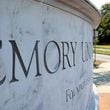ABOUT THE COLUMNIST
Gracie Bonds Staples is an award-winning journalist who has been writing for daily newspapers since 1979, when she graduated from the University of Southern Mississippi. She joined The Atlanta Journal-Constitution in 2000 after stints at the Fort Worth Star-Telegram, the Sacramento Bee, Raleigh Times and two Mississippi dailies. Staples was recently promoted to Senior Features Enterprise Writer. Look for her columns Thursdays and Saturdays in Living and alternating Sundays in Metro.
The long-running sitcom “The Jeffersons” opens with the theme song “We’re Moving on Up,” describing George and Louise’s ascension from a working-class section of Queens, N.Y., to a luxury apartment in Manhattan.
The Jeffersons had essentially done what many upwardly mobile African-Americans do: move out of all-black urban neighborhoods and into the suburbs.
There's nothing wrong with that, but there's a lot to be said about people like Pearlie Dove, one of the first African-Americans to receive a doctorate from the University of Colorado at Boulder, who stay.
Now 93 and suffering from congestive heart failure, Dove knows her time isn’t long. She is unable to sit for more than an hour without feeling tired. All of it has left her in a reflective mood.
She has things she needs to say.
Dove grew up in Washington Park, a 15-block northwest Atlanta community founded back when African-Americans weren’t allowed beyond Hunter and Ashby streets and live-work-play neighborhoods hadn’t yet captured the imagination of boomers and politicians.
It was founded in 1919 by Heman Perry partly out of necessity — at the time, African-Americans weren't welcome past the color line. Partly out of the desire to have access to quality homes. It sparkled even when the sun didn't shine.
“It was like Camelot,” Dove remembered recently. “We had everything we needed. Stores. Schools. Banks. A theater and a hospital.”
It was one of the best-kept secrets in Atlanta, the first planned black suburb, a place anyone would feel proud to call home.
“I thought it would last forever,” Dove said.
Dove grew up on the corner of Simpson Road and Temple Street, across from Fire Station 16. After graduating in 1937 from Booker T. Washington High School, she earned bachelor's and master's degrees in elementary education and home economics from Clark College and Atlanta University.
She left the neighborhood only for a short time to get her doctorate and to support her husband, Chaplin Jackson Benjamin Dove, a first lieutenant in the U.S. Army.
Because African-Americans couldn’t enroll at Georgia’s flagship universities, Dove spent summers at the University of Colorado, where she earned her degree in teacher education, becoming the first black woman and the third African-American to receive a doctorate from UC’s School of Education.
In 1951, the couple returned to the old neighborhood, not far from Dove’s childhood home.
By the 1970s, Washington Park was starting to change. The city of Atlanta decided to put in the MARTA rail line, I-20 was extended to the west and race no longer held black residents captive. They could move beyond the Peyton Road Wall and they did.
Dove, though, remained.
“We decided to stay and fight to preserve Washington Park rather than switch,” she said. “I knew that this neighborhood would be lost just like Auburn Avenue.”
Plus Dove understood, perhaps better than anyone, that you don’t desert the one who brung you. There wouldn’t have been a Washington Park without Heman Perry, and Pearlie Dove would not have existed without Washington Park.
“It meant everything to me that a black man in 1919 would have this vision for a livable city,” she said.
Dove credits her grandfather, Caleb Dyer, for her chutzpah.
He constantly reminded her that she was as good as anyone.
“With God as our guide and family support, the world would make a beaten path to your door,” she said, quoting him. “We did not compete with others, we competed with ourselves.”
That doesn’t surprise me. Contrary to popular belief, African-Americans have a long history of striving for excellence and succeeding against the odds.
It’s people like Dove who do the heavy lifting often in secret and without the recognition, the applause or headlines trumpeting their good deeds. She knows that there is a need for both leaders and followers, decision makers and implementers. She hasn’t forgotten as some do that she is a servant leader and the best ones groom others to take their place.
Christi Jackson has been working with Dove to advocate for Washington Park for the past seven years. She considers the retired teacher and great-grandmother a role model for anyone who wants to give back some of what’s been given to them.
Together, they are a force to be reckoned with. They saved Heman Perry's home from demolition. They got funding to update the Washington Park Livable Centers Initiative and are working through the Conservancy at Historic Washington Park to get local historic designation for the community.
Two years ago, Dove’s heart started to give out and in the past month or so has been working at only 40 percent. There’s nothing more doctors can do for her.
“I’m tired now,” she said.
There's no question Pearlie Dove has done her community proud, training the next generation of teachers. Even after she retired in 1986, she continued to give, working with The Atlanta Project to help preserve Washington Park and other neighborhoods.
She never forgot where she came from. Indeed she was proud of her roots. She still is.
“I’m 93,” she said. “I was a good person and true to my heritage. As my grandfather said, we owe to the community the goodness that happened to us.”
Pearlie Dove has experienced a lot of good in her time, and she has spent her life doing what she could to pass it on to others. She and her daughter, Carol Ann Dove, and a former student, Noran Moffett, have turned a collection of her speeches into a book — "Pearls of Wisdom From a Woman of Color, Courage and Commitment" — available on Amazon.com. All proceeds from the sale of the book will go to the Dr. Pearlie Dove Community Council Scholarship Award.
“That’s my legacy,” she said.






